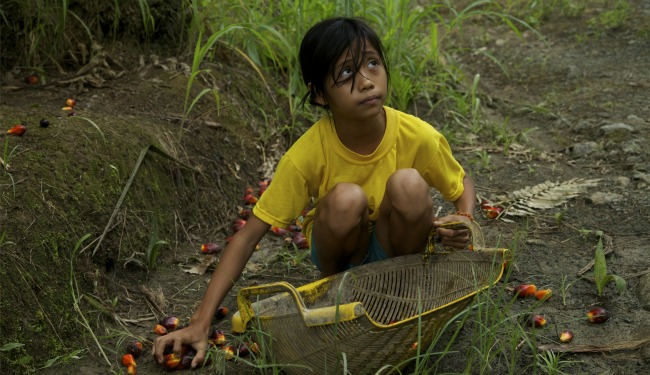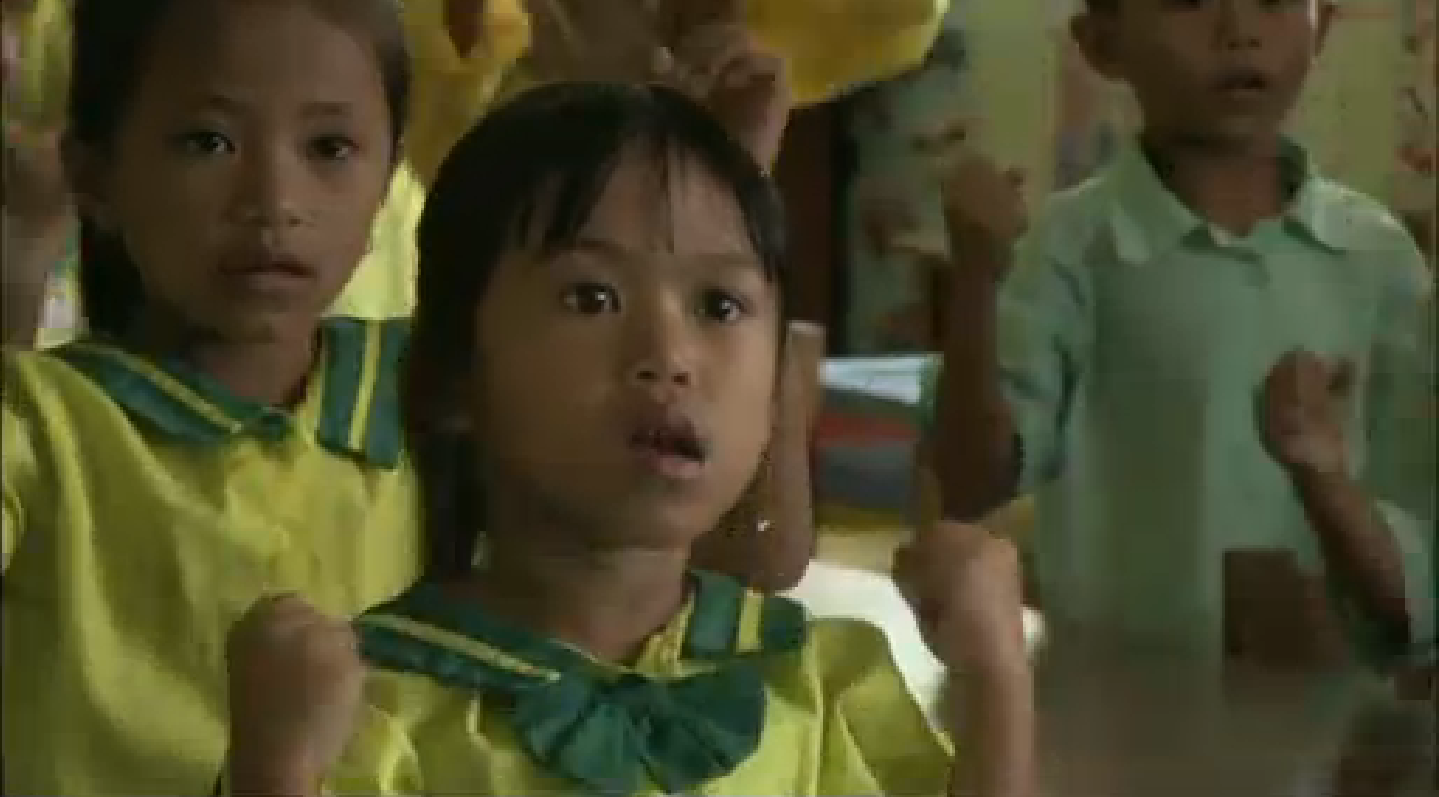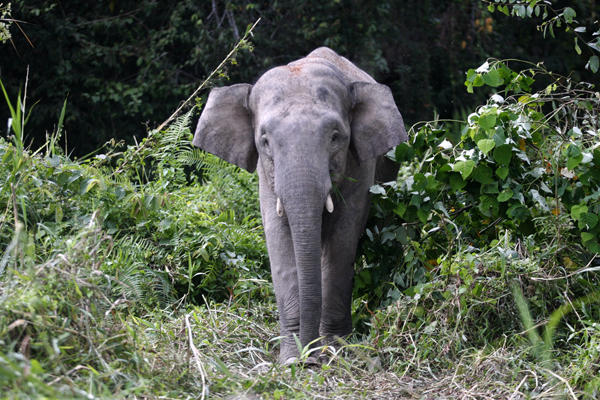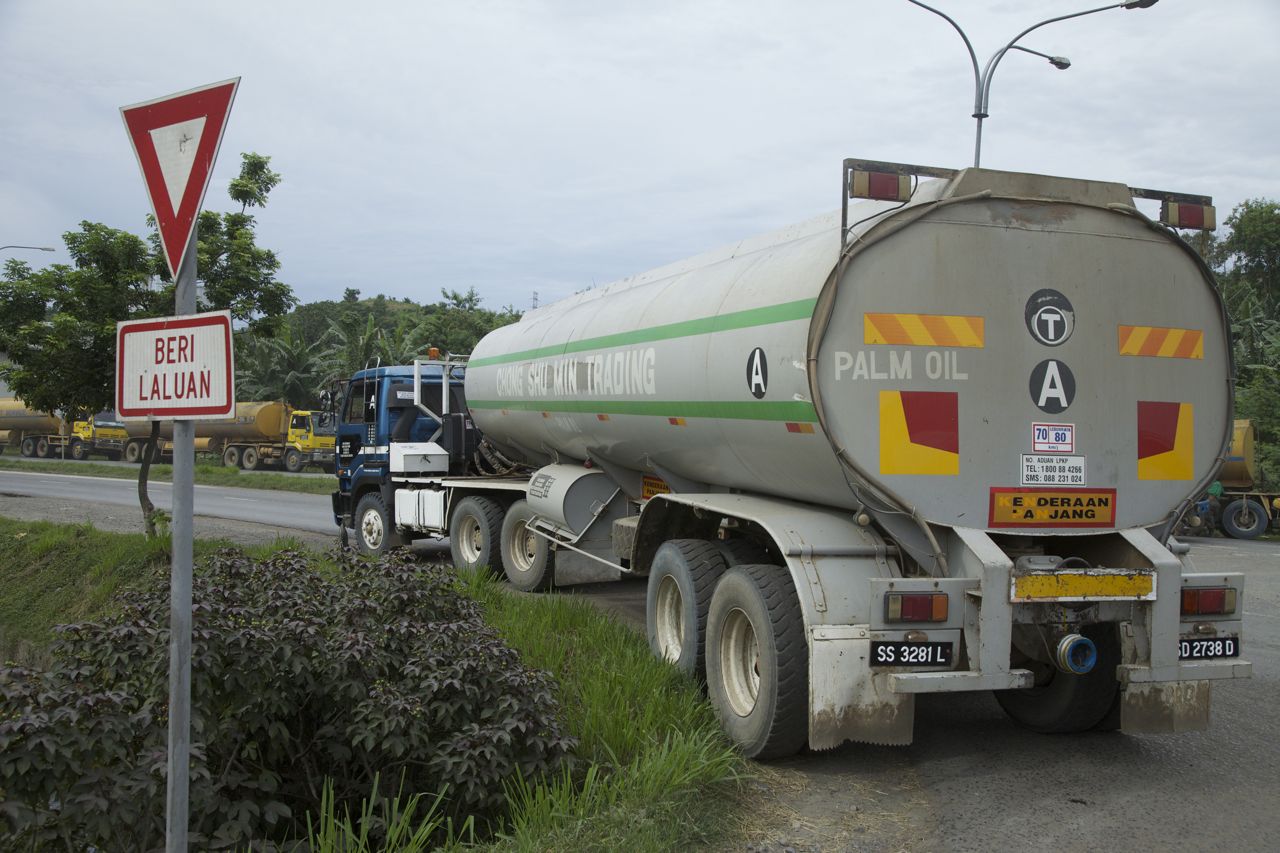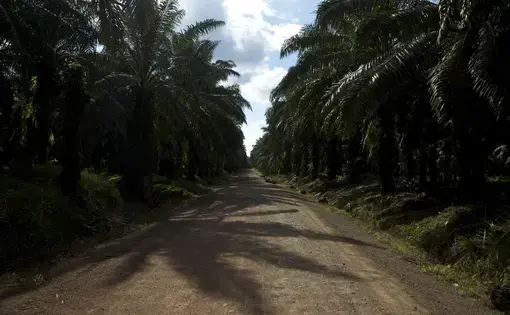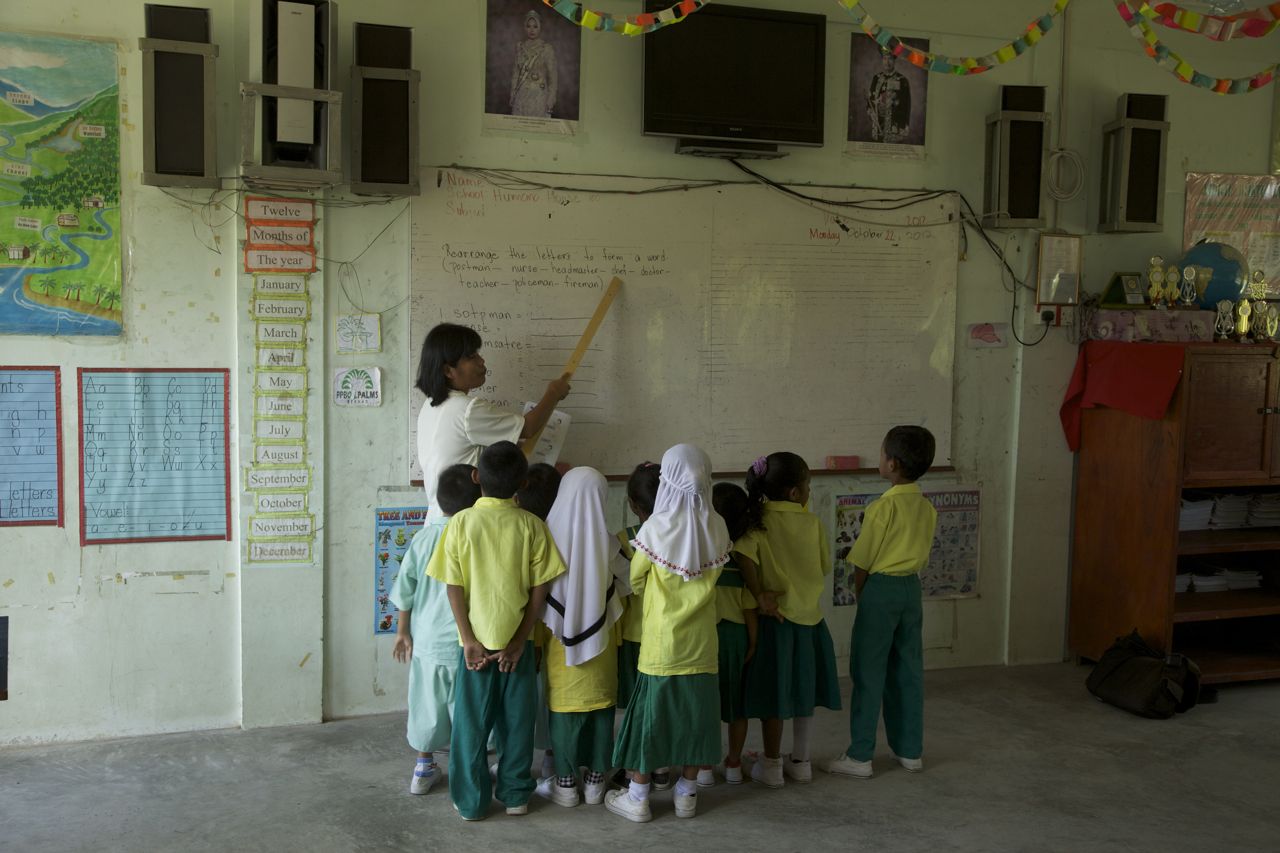Project November 26, 2012
Lost in the Forest: Stateless Children in Borneo’s Palm Oil Industry
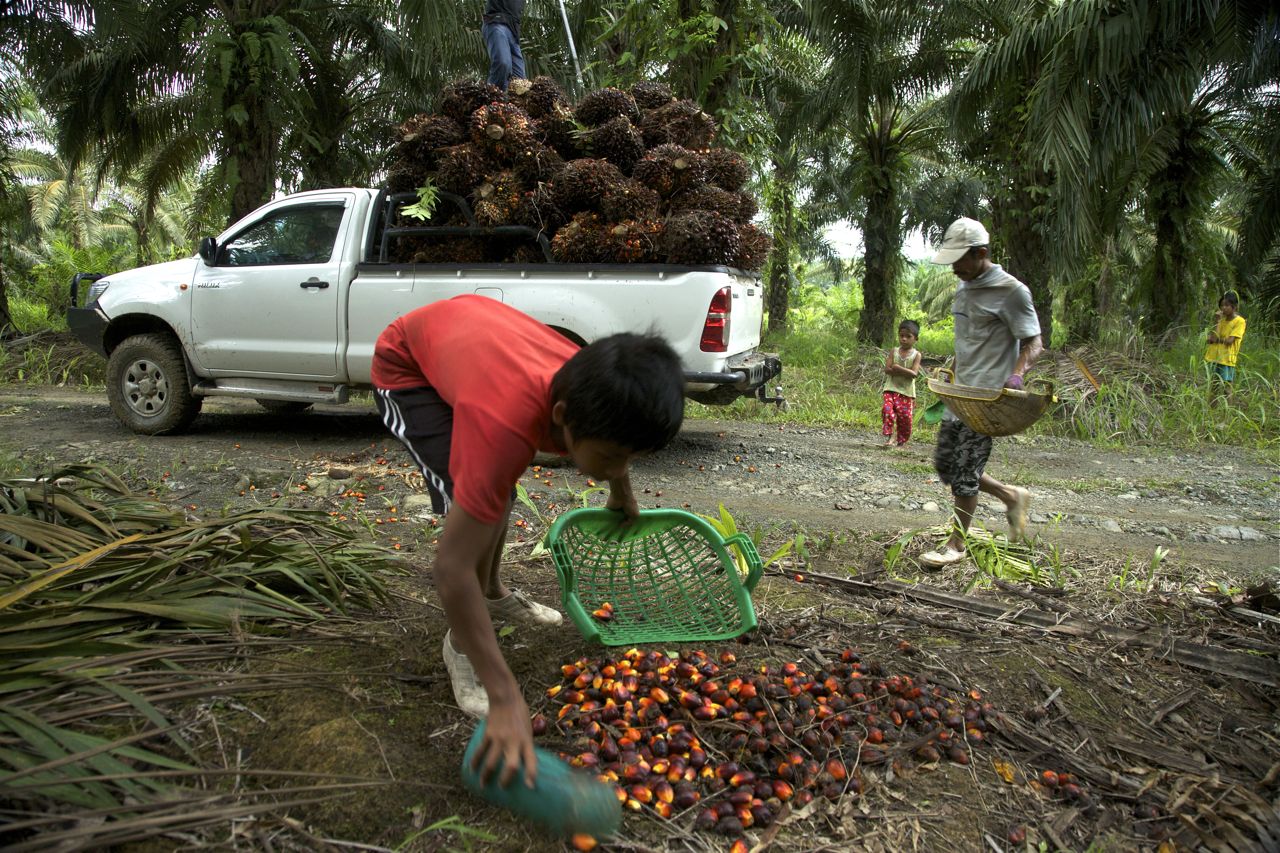
Unlike the rest of the world, palm oil is not the preferred cooking agent in Western kitchens. But it permeates nearly every other facet of domestic life, from chocolate chip cookies to cosmetics. And because health-conscious consumers are demanding better alternatives to the oils rich in trans-fat found in most processed foods, palm oil is becoming even more widely used in the United States and Europe. Already the most produced and internationally traded edible oil, global demand is forecast to double by 2020.
Profitable as it is for multinational companies, palm oil is also extracted at a heavy social and environmental cost that make it one of the most controversial commodities in the world. Nowhere is the toll more acutely felt than the island of Borneo, divided between Malaysia and Indonesia, which together account for nearly 90 percent of global palm oil exports.
On both sides of the border, the industry thrives on cheap labor. In Malaysia's Sabah province, thousands of stateless children, born to undocumented Indonesian and Filipino migrant workers, live without access to health care or education. In Indonesia, workers continue to clear-cut swathes of rain forest the size of small countries, emitting massive amounts of greenhouse gases. Rare biodiversity is being destroyed, including the habitat of the orangutan, humankind's closest relative. Meanwhile, many workers are de facto slaves on the plantations.
Steve Sapienza and Jason Motlagh travel to Borneo to investigate palm oil production in the backcountry. Starting with plantations in Sabah that employ children and families caught in legal limbo, they venture into Indonesia's seldom visited western Kalimantan, where new plantations are carving a path through virgin terrain at the expense of one of the world's last great natural expanses. Along the way, the true cost of the industry is revealed.


